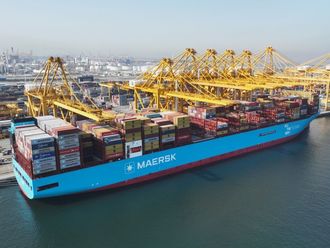Dubai: To attract foreign direct investment (FDI), the internet should be open and the countries should not become islands, said Sir Tim Berners-Lee, who invented the internet.
He was one of the guest speakers at the two-day World Forum for Foreign Direct Investment (FDI) held in Sharjah and was speaking on the topic “Leapfrogging Competition: Tech Strategy For Business”.
The event, now in its 12th year, has been held in major cities around the world but is being held in the Middle East for the first time.
“There is a natural tendency for the governments to try to put fences around their particular country because they [countries] have to enforce the laws and have a geographical jurisdiction. A country which tries to fragment itself from the crowd by imposing regulations will not attract FDI and will become an island,” he said.
It is 25 years since Lee invented the World Wide Web, and the codes (HTML, URL and HTTP) he created back in 1989 still form the structural design of the internet today.
For the last 25 years, he said all the people who have been working on it [the internet] are working on the standards and speak the same language. Heavy regulation will create uncertainty and chill investment among many players.
It is good to celebrate the anniversary, but “we have to think seriously about the future and the present too,” he said.
According to International Telecommunications Union, the number of internet users grew from 2.7 billion to almost three billion last year, registering a growth of 6.6 per cent.
Five years ago, it was just two billion. There are still more than four billion people without internet access now.
Lee said that 40 per cent of the people at present are connected to the internet and that is a huge number. But when compared to the 100 per cent, it is still a very small number.
The 40 per cent has the “power to connect” to the whole world in a second, create blogs and websites, and read whatever they want and educate them.
“So we started the World Wide Web Foundation to get the 60 per cent online as fast as possible. Not only to connect them but also to help the humanity. Internet can be used as a media to understand different cultures and religions in the world,” he said.
He said that he didn’t need permission to create the internet and users don’t need permission to start a website. The internet was created as an “open, collaborative and creative space” to ensure it says free and open.
“Majority of the people are still unconnected and our job is to connect the unconnected,” he said.
The International Telecommunication Union (ITU) is aiming to bring 1.5 billion more people online by end of the decade through a programme called “Code 2020”.
Apart from these, tech majors like Google and Facebook have launched projects to deliver internet access to remote areas through drones and satellites.












